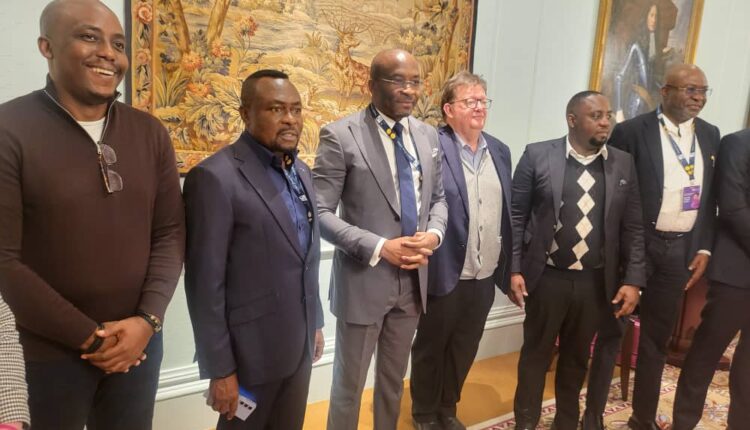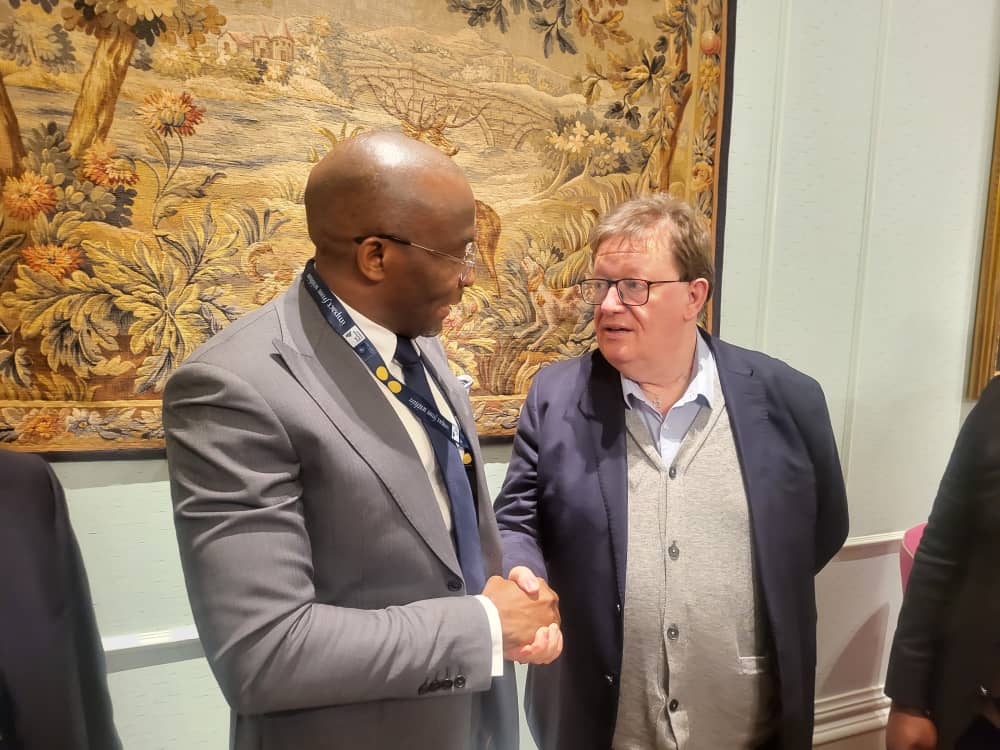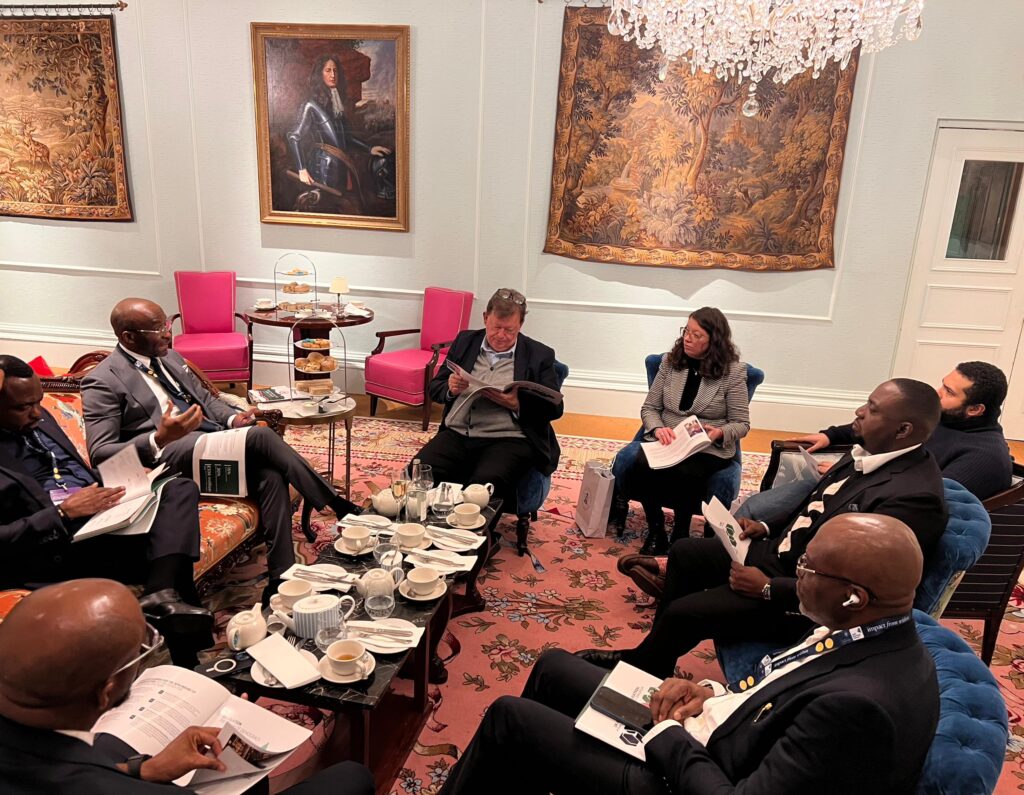Nigeria Saved $10b from Subsidy Removal in 2023, Records 22% Rise in Remittances -Deputy Speaker, Kalu
The Deputy Speaker of the House of Representatives, Hon. Benjamin Okezie Kalu has said that the removal of the fuel subsidy has yielded significant economic benefits for Nigeria, with the government saving $10 billion in 2023.
He also said that the move has led to a 22% increase in dollar remittances from the diaspora, totaling $28 billion in 2024.
Kalu gave the highlights of the achievements by the President Bola Ahmed Tinubu APC led administration during a recent meeting with some investors and a group of scholars at Oxford University in London on the sideline of his ongoing UK-Nigeria Parliamentary Strategic Dialogue working visit to the United Kingdom.
Accompanied by some members of the House of Representatives including Hon. Chris Nkwonta, Hon. Ginger Onwusibe and Hon. Ibe Okwara, the Deputy Speaker spoke essentially on four key areas of politics, security, economy and development with the team led by Peter Claus, a Professor of History and Access Fellow at the Pembroke College, University of Oxford.
Others at the parley included Dr. Christopher Nwadiba, Fellow at Oxford University; Dr. Dyedra Morrissey, Lecturer at Said Business School, Oxford University; Dr. Nwirivu Rupara, Engr. Jackson Offor and Ms. Sandra Elias, all of Oxford University.
Kalu emphasized that the subsidy removal has enabled the government to redirect funds to critical sectors such as healthcare, education, and infrastructure.
He said that the economic gains from the subsidy removal have been complemented by other notable achievements, including a 3.19% increase in Nigeria’s GDP in Q2 2024.
He added that the government’s efforts to promote economic growth and development have also led to a significant increase in Foreign Direct Investment (FDI), with Nigeria attracting $6.4 billion in FDI in 2024.
Deputy Speaker further noted that Tinubu’s administration has made significant strides in the areas of politics, security, economy and development which reflected the Legislative Agenda of the 10th House of Representatives.
Kalu highlighted the strengthening of democratic institutions through legislative reforms, including the passage of the South East and North West Development Commission Acts.
He said that the government has also enhanced electoral integrity through technology-driven processes, leading to increased political engagement among Nigeria’s youth.
On security, Kalu noted a 47% reduction in incidents of banditry in the North-West between Q2 2023 and Q4 2024.
He revealed that collaborative operations between the Nigerian Armed Forces and regional counterparts have resulted in the capture of over 1,500 insurgents in the Lake Chad Basin.
In the development sector, the Deputy Speaker said that government has launched various initiatives aimed at promoting technological advancement and innovation.

He revealed that the National Digital Economy Policy (2023-2030) aims to increase internet penetration from 49% to 70% by 2027 adding that the launch of the Nigeria Start-Up Act has also spurred tech innovation, securing over £300 million in venture capital funding in 2024.
Kalu said that more economic opportunities abound in Nigeria for investors, asking them to consider the country as the next business destination.
He also called for international collaborations to strengthen socio-economic advancements in the country.
He said: “The fulcrum of our democracy is the legislature. If you support the legislature, you’re supporting democracy. What the current administration has done is to support this arm of government full well to make sure that our representation in our various constituencies are visible.
“The visibility of our legislative interventions is more in our rural areas. The President’s administration’s objective will be made visible because our legislative agenda is in sync with his own objectives.
“He has identified that development commission should be a structure for pushing down the dividends of democracy to the grassroots and therefore he has started with what we call development commissions.
“I sponsored one of the bills called the South-East Development Commission and why I moved that bill is because, my zone, your zone, your heritage passed through war. About 3 million people lost their lives. That healing that’s supposed to take place didn’t take place. The 3Rs promise made then was not kept and that gave birth to agitation, conflict, insecurity in that area. I said no, it’s about time we changed the dynamics and the narratives.
“The President understood the agitation in the hearts of the people in the region because they felt alienated and marginalised. He opened his eyes to the need of more development in the area and he assented to that bill to become law. So, today we have SEDC Act and he has gone ahead to fund it in the 2025 budget for the reconstruction of the area.
“It was a private member bill that originated from the parliament and he assented to it. That shows you a President that is willing to listen, a people-oriented president running the government of the people, by the people, for the people.”
In his remarks, Dr. Nwirivu Rupara, a Zimbabwean Investor at the parley, urged African leaders to encourage initiatives to improve intra-African trade, describing the current statistics for trade among African countries as poor.
He expressed interest in the exploration of the green metals available in Nigeria and made a commitment to further the conversation at subsequent meetings.
Similarly, a Fellow at Oxford University, Dr. Christopher Nwadibia expressed a keen affiliation with Nigeria having been born of a Nigerian father.
He said there were many of them in the diaspora academic community willing to reconnect with Nigeria and leverage their contacts within foreign governments especially in the United Kingdom and United States of America to advance Nigerian causes.
Nwadiba expressed gratitude to the Deputy Speaker for the engagements towards the development of Nigeria and Africa.
On his own, Engr. Jackson Offor,.also from Oxford University said he was interested in opportunities in the energy sector in Nigeria and commended the Deputy Speaker for succinctly highlighting the inherent opportunities in the sector especially renewable energy in line with current climate change realities.
The parties agreed to host their next parley in Nigeria where other stakeholders will join the conversations on Africa, her opportunities and how best to maximize the advantages of the African Continental Free Trade Area Agreement (ACFTA).



